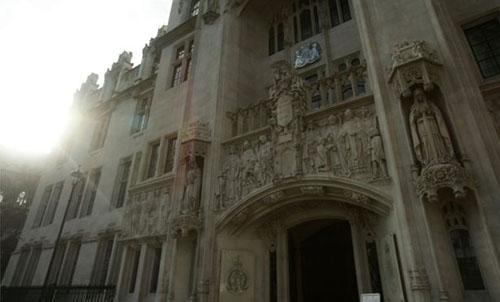Immigrants' spouses 'must speak English before entering UK'
The supreme court has rejected a challenge against an immigration rule requiring spouses to be able to speak English before moving to the UK.
According to a report in The Guardian, five justices urged to rule that the pre-entry measure was “unreasonable, disproportionate and discriminatory”, but the panel of judges, led by the court’s president, Lord Neuberger, dismissed an appeal by two women with British citizenship. Their husbands, who cannot speak English, are foreign nationals and wish to join them in the UK.
Saiqa Bibi and Saffana Ali reportedly claimed the requirement breached their right to a private and family life under article 8 of the European convention on human rights. It was said in both cases it would not be feasible for their husbands to pass a test before moving to the UK. But the supreme court decided on Wednesday that the rule did not infringe article 8.
Although the supreme court rejected the challenge against the rule, the judges asked for further submissions from the parties on “whether a declaration should be made that the operation of the guidance in its present form is incompatible with article 8 rights where compliance with the requirement is impracticable”.
The judgment follows earlier rulings in the high court and court of appeal that there was no disproportionate interference with family life.
(The Guardian)
The supreme court has rejected a challenge against an immigration rule requiring spouses to be able to speak English before moving to the UK.
Five justices in London had been urged to rule that the pre-entry measure was “unreasonable, disproportionate and discriminatory”. But the panel of judges, led by the court’s president, Lord Neuberger, unanimously dismissed an appeal by two women, who are British citizens. Their husbands, who cannot speak English, are foreign nationals and wish to join them in the UK.
Saiqa Bibi and Saffana Ali claimed the requirement breached their right to a private and family life under article 8 of the European convention on human rights. It was said in both cases it would not be feasible for their husbands to pass a test before moving to the UK. But the supreme court decided on Wednesday that the rule did not infringe article 8.
‘I can’t speak properly. I am different’: do you need to speak English to be a good citizen?
Read more
Although the supreme court rejected the challenge against the rule, the judges asked for further submissions from the parties on “whether a declaration should be made that the operation of the guidance in its present form is incompatible with article 8 rights where compliance with the requirement is impracticable”.
The supreme court judgment follows earlier rulings in the high court and court of appeal that there was no disproportionate interference with family life.
Lady Hale, deputy president of the supreme court, suggested the appropriate solution to avoid infringements in individual cases would be to “recast” the guidance to grant exemptions in cases where compliance with the requirement was impracticable.
One remedy might be for the court to declare that the present application of the guidance is incompatible with the rights of individuals in such circumstances. Lord Neuberger agreed that the guidance seemed “bound to result in the infringement of article 8 rights in individual cases”, but said the rule itself was not disproportionate.
Since late 2010, the spouse or civil partner of a British citizen or person settled in Britain has been required to pass an English language test before moving to this country. Before the amendment to the immigration rules, they were only required to demonstrate such knowledge two years after entering the UK.
In December 2011, a high court judge in Birmingham dismissed judicial review cases brought by three couples. Mr Justice Beatson ruled that the requirement did not interfere with their right to marriage, and was legitimate in its aim of protecting public services and promoting integration.
Related Posts

